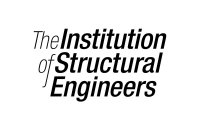
Overview:
Client, government and regulatory aspirations are pushing sustainable design to the forefront, particularly in infrastructure design. Geotechnical engineer (and engineering geologists) are typically involved from an early stage from master planning through detailed design to construction. They therefore have a positive role to play in delivering solutions that meet these aspirations. This course looks at key aspects of the physical developments with practical guidance on how to design and measure sustainable design outputs
Aims & Objectives:
Be aware of the range of background drivers and client/government aspirations to achieve sustainable infrastructure projects
The aims and objectives are to provide designers and client organisation with sufficient knowledge to:
- Define options available for sustainable applications
- Define objectives for desk studies, ground investigations and opportunity appraisals
- Understand what techniques are available.
- Be aware of standards and best practice documents available
- Review the regulations that exist
- Avoid pitfalls when addressing sustainable issues
- Establish how to find information relevant to sustainable applications in geo-engineering
- Apply the skills required to infrastructure projects
- Identify the benefits of sustainable design applications
- Explain the benefits to clients, regulators and decision makers
Course Outline:
Introduction and Background
- Sustainable development basics
- Current government initiatives
- EU aspirations
- Local authority drivers
Fundamentals to Introducing Sustainable Engineering Design
- Regulatory requirements
- Client requirements
- Setting objectives
- Professional requirements
Carbon Counting
- Methods
- Tools
- Specification
- Boundary conditions
- Exercise
Materials Management
- Setting strategies
- Tools
- WRAP
- MMP components
- Exercise
Waste Management
- Reducing waste
- Recycling
- Waste Code of Practice
Mode of Delivery:
Delivery will be by:
- Initial Assessment of participants
- Presentations
- Interactive Exercises
- Individual or Group Exercises
- Discussion
- Visual Aids e.g. short DVD/video, models, samples, etc.
- Feedback Activity
- Final Assessment
Benefits of Attending:
- Awareness of the range of applications
- Confidence in the application to sustainable design
- Ability to define objectives
- Knowledge of background drivers and regulations
Intended For:
The course is intended for designers, contractors and client organisations that procure, define, design and construct infrastructure projects








